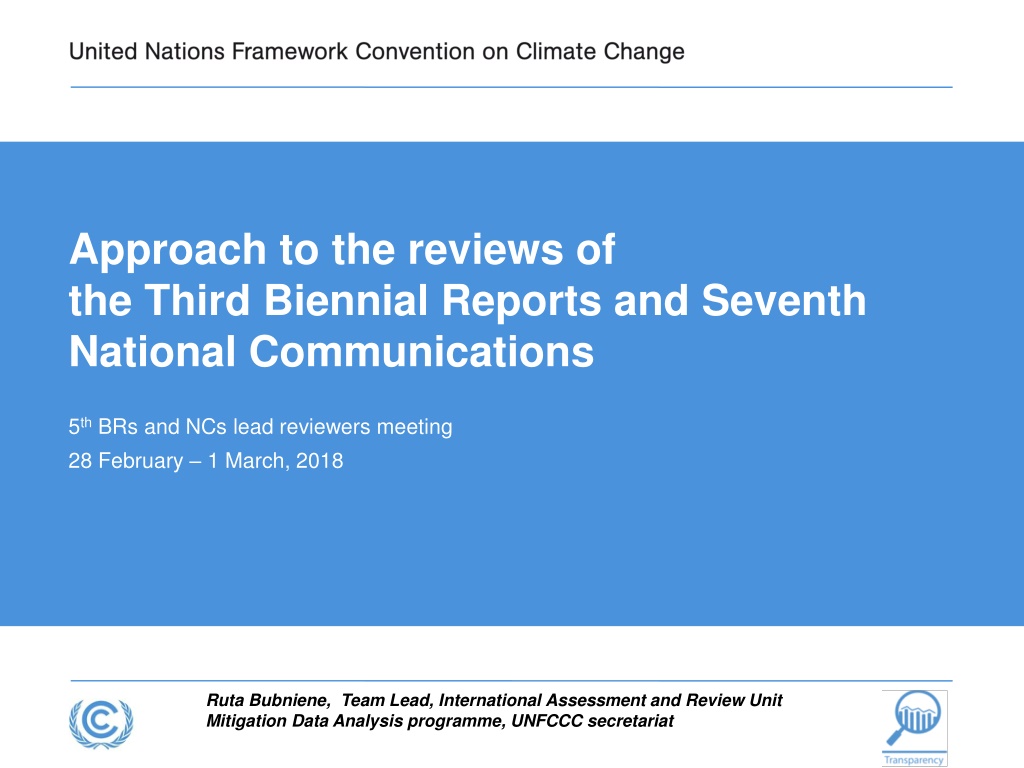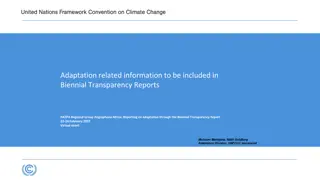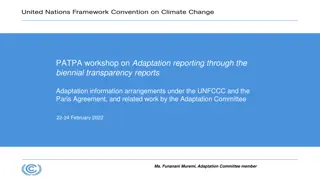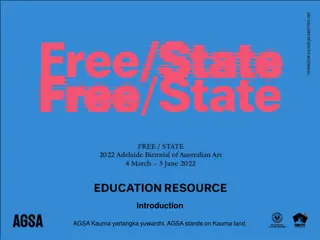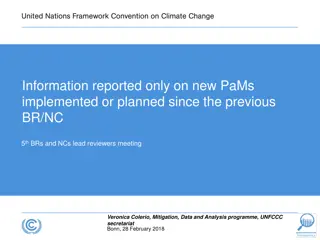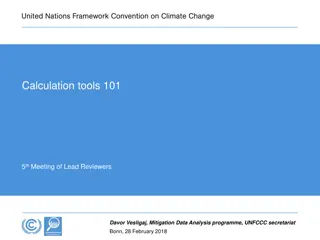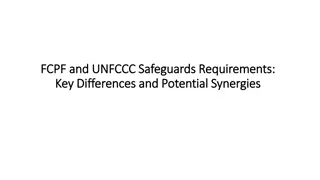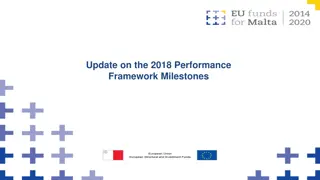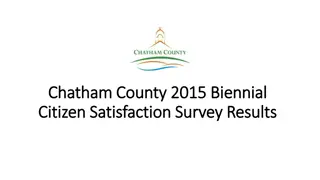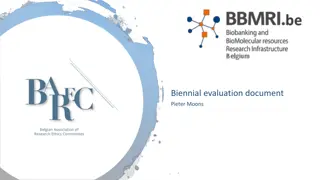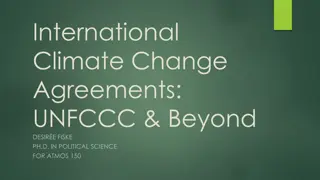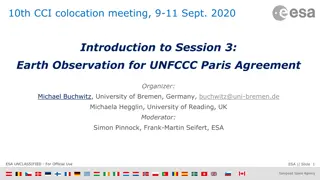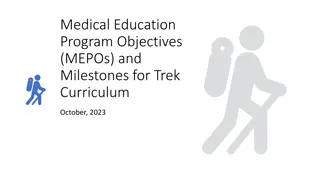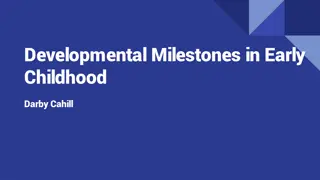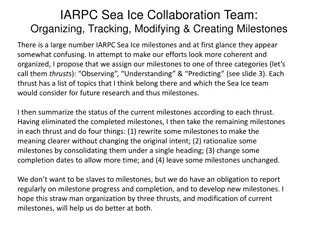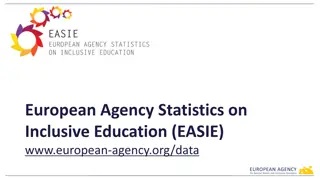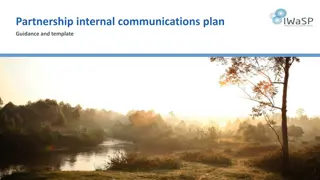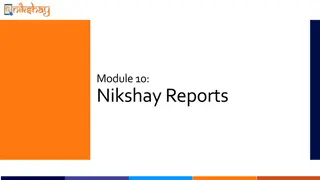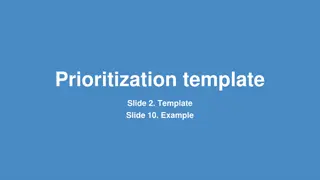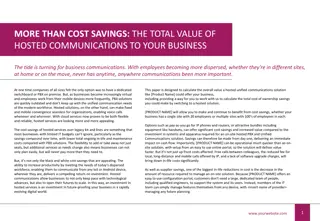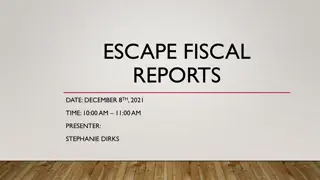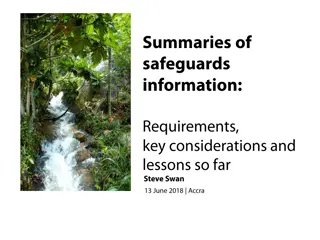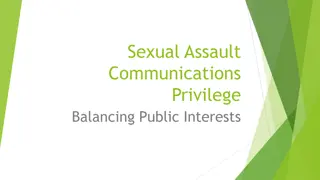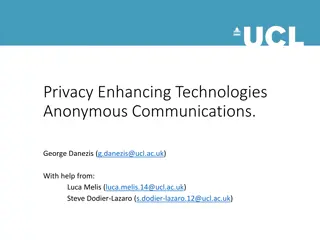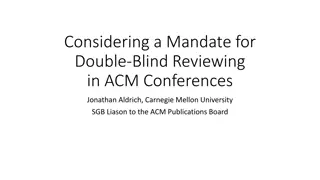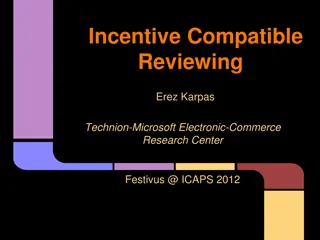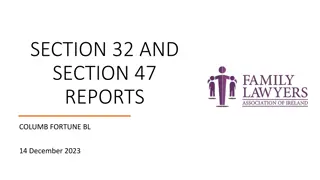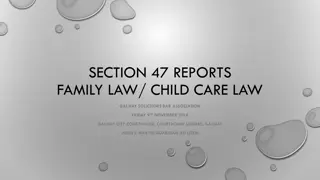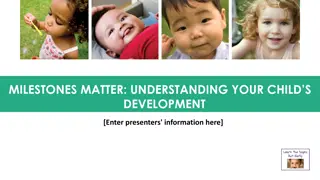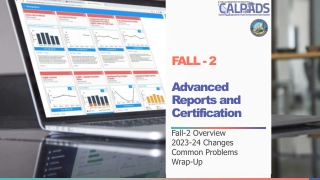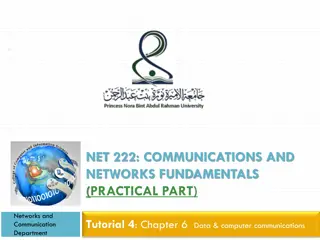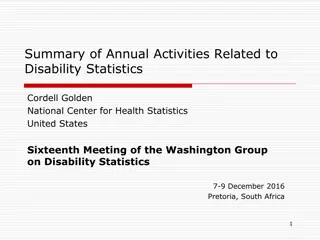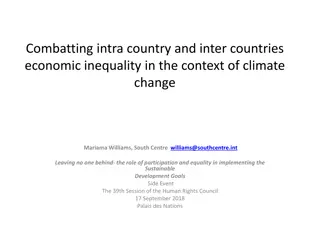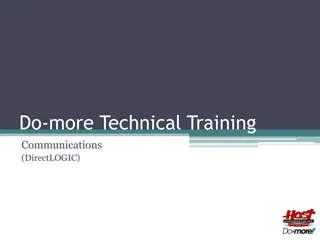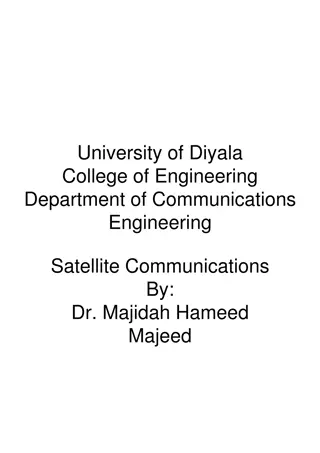Challenges and Milestones in Reviewing Biennial Reports and National Communications in the UNFCCC Process
Reviews of Third Biennial Reports and Seventh National Communications face challenges in securing supplementary resources, timely submission, and sustaining a pool of qualified experts. The UNFCCC secretariat is coordinating 44 reviews in the 2018-2019 cycle, with 22 reviews dependent on additional funding. Efforts are being made to improve the reviews' quality and consistency through greater coordination and training.
Download Presentation

Please find below an Image/Link to download the presentation.
The content on the website is provided AS IS for your information and personal use only. It may not be sold, licensed, or shared on other websites without obtaining consent from the author. Download presentation by click this link. If you encounter any issues during the download, it is possible that the publisher has removed the file from their server.
E N D
Presentation Transcript
Approach to the reviews of the Third Biennial Reports and Seventh National Communications 5th BRs and NCs lead reviewers meeting 28 February 1 March, 2018 Ruta Bubniene, Team Lead, International Assessment and Review Unit Mitigation Data Analysis programme, UNFCCC secretariat
Building trust through MRV Lead reviewers drive the implementation of MRV which improves climate change information, builds institutional arrangements and creates forum for global knowledge sharing. Paris Paris Agreement Agreement Convention Convention COP 24 COP 24 Marakesh Marakesh Accords Accords Cancun Cancun Agreement Agreement Kyoto Kyoto Protocol Protocol Paris Paris Rulebook Rulebook Reviews of Reviews of AI NCs AI NCs launched launched Negotiations Negotiations on MPG for on MPG for reviews and reviews and FMCP FMCP . Initial Initial reviews of reviews of KP KP True up True up period period review of KP review of KP IAR IAR launched launched ICA Reviews of Reviews of GHG GHG inventory inventory launched launched ICA launched launched TA of forest mang. TA of forest mang. Refer. level Refer. level launched launched
Third IAR cycle 2018-2019 (2021): milestones The secretariat stands ready to coordinate 44 reviews from March 2018-March 2019 and conduct 3 rounds of MA. Yet 22 of reviews are subject to availability of supplementary resources.
BR3/NC7 reviews relay heavily on supplementary resources 22 supplementary resources 22 core/ internally The IAR team is able to coordinate 22 BR3/NC7 reviews during the biennium review cycle (March 2018 March 2019) from the core UNFCCC secretariat budget. The remaining reviews, could be conducted only upon receipt of the supplementary funding. For the remaining reviews, the review coordinators from other units/programmes are involved (subject of pioritization of tasks) and consultants (subject to supplementary funding. This implies larger coordination efforts to ensure consistency; and longer learning curve of new review coordinators to ensure quality.
Challenges in timely submission remain About 60% of BR3/NC7 was submitted by 1 Jan 2018. Delay in submission hampers the preparation for reviews, especially for the organization of the CRs, when several Parties are reviewed during the same week in the 1st half of 2018.
Challenges in sustaining the pool of experts Only of pool of experts in RoE nominated for BR/NC reviews is qualified and willing to participate in the reviews. Half of all experts are non- experienced experts who have not enrolled in the BR/NC training programme and thus are not eligible for review;
Challenges in sustaining the pool of experts Only of pool of experts in RoE nominated for BR/NC reviews is qualified and willing to participate in the reviews, as: 1/5th of BR/NC experts pool is silent , has not responded to the survey, either because of no interest or due to incorrect contact details.
The number of experts should be increased In total supply (218) meets the demand for BR3/NC7 cycle (190) To ensure sustainability of the pool the number should be increased, in particular taking into account: competing review process where the same experts are involved (BURs, GHG); level of turnover of experienced experts; optimal ratio of non-experienced/experienced experts in an ERT (40/60); decline rate due to the clashing priorities.
ERT composition: unequal distribution among the review expertise Many experts who are willing and qualified to participate on BR3/NC7 review have multiple expertise. PaMs and Projections experts come mostly from AI experts, while FTC and V&A experts come mostly from NAI.
Conclusions - points for consideration by LRs Encourage Parties to submit on time, as delay of submission hampers the preparation of reviews Encourage Parties to provide supplementary funding for BR/NC reviews, as 22 BR3/NC7 reviews are subject to availability of supplementary resources. Note that the ERTs for the upcoming reviews are set in a balanced way taking the available and willing to participate experts. Note the need to increase a pool of qualified experts, as only of pool of experts in RoE nominated for BR/NC reviews is qualified and willing to participate in the reviews.
Conclusions - points for consideration by LRs The ways to increase the pool of these experts could be: To encourage National Focal Points to: nominate experts who are involved in national reporting; monitoring, so that the respective government could benefit from the expertise gained and capacities build to the experts during the reviews; to update the list of experts, leaving only those able to participate in reviews; To encourage experts who are nominated to the RoE: to participate in the training programme (September 2018); to update their contact details on the RoE
